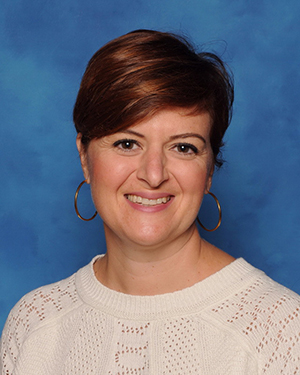Why I Became a School Counselor

What qualifies someone to be an outlet to students who are looking for a safe space? Graduate of the School Counseling program, Sylvia Doud, ’94, M.Ed., ’17, and current student the Master’s Plus program, believes that the School Counseling program is helping her to be a part of that safe space for students as a school counselor.
“To be able to put what you’ve learned into practice – being able to provide a safe space for some of these students who’ve experienced trauma, and a lot of mental health issues. I don’t think those opportunities would have come up in any other school but Loyola,” said Doud.

And she’s right. Loyola’s mission as a Jesuit university and location, anchored in Baltimore, Md, allows students to have field experience and training in the socioeconomic, emotional, and systemic issues that are often prevalent urban communities. Not every school is located in an area with economic growth and
opportunity and not every student has the advantage of a stable—or even safe—family environment. Loyola’s School of Education recognizes that and prepares their counselors to not only help student, but also be advocates on these issues in their community.
Doud said the mission and familiarity with the University are what called her to participate in Loyola’s program. As an alumna, Doud continues to value the school missions of social justice, which is engraved throughout the curriculum. She feels this aspect shapes great leaders.
The Master of Education and Master of Arts (M.A.) in School Counseling programs are nationally recognized by the Council for Accreditation of Counseling and Related Education Programs (CACERP), which ensures that students have met all national requirements and sets a professional standard for quality.
“Once I started the program and began networking with other counselors, I realized the importance of a CACREP-accredited program and how candidates from these programs have a tremendous advantage in being prepared to work in the field,” said Doud.
To prepare future counselors, Loyola provides graduate students with a diverse group of faulty who can share unique experiences from their research and experience in the field.
“I think the beauty of [the faculty] is that each professor is very different and they are coming from different backgrounds. Obviously they all have the
foundation in school counseling but everybody kind of comes at it from a different view.”
Doud is supported by the faculty and staff who make it their mission to polish Loyola school counselors to be the best they can be for these students who need them. “I’ve gotten such tremendous support from all the faculty, I think from really day one.”
Support is something the faculty imposes on the graduate students as these future counselors will support their future students as well. Schools need counselors like Doud who are able to work through different situations and provide positive, reinforcing support to the students.
Prior to beginning her master’s degree, Doud was working at a non-profit organization, The Family Tree. The focus was to eliminate child abuse and neglect in Maryland. Doud worked as a Community Education Specialist and taught a program to parents on how they could provide a safe space for their children who had been taken from them. As a former teacher, Doud admitted that she missed the school environment and wanted to combine this aspect with a comprehensive school counseling education.
Currently, Doud is working as a school counselor at Cristo Ray Jesuit High School in Baltimore City. To further her studies after the initial counseling program, Doud is pursuing the Master’s Plus program, which provides the necessary coursework required for students to become a Licensed Clinical Professional Counselor (LCPC). Six coursed are available under this program that are all required by the Maryland Board of Professional Counselors. After this spring, Doud will be on the road to becoming a licensed counselor.
To hear more from Doud, view her video interview.